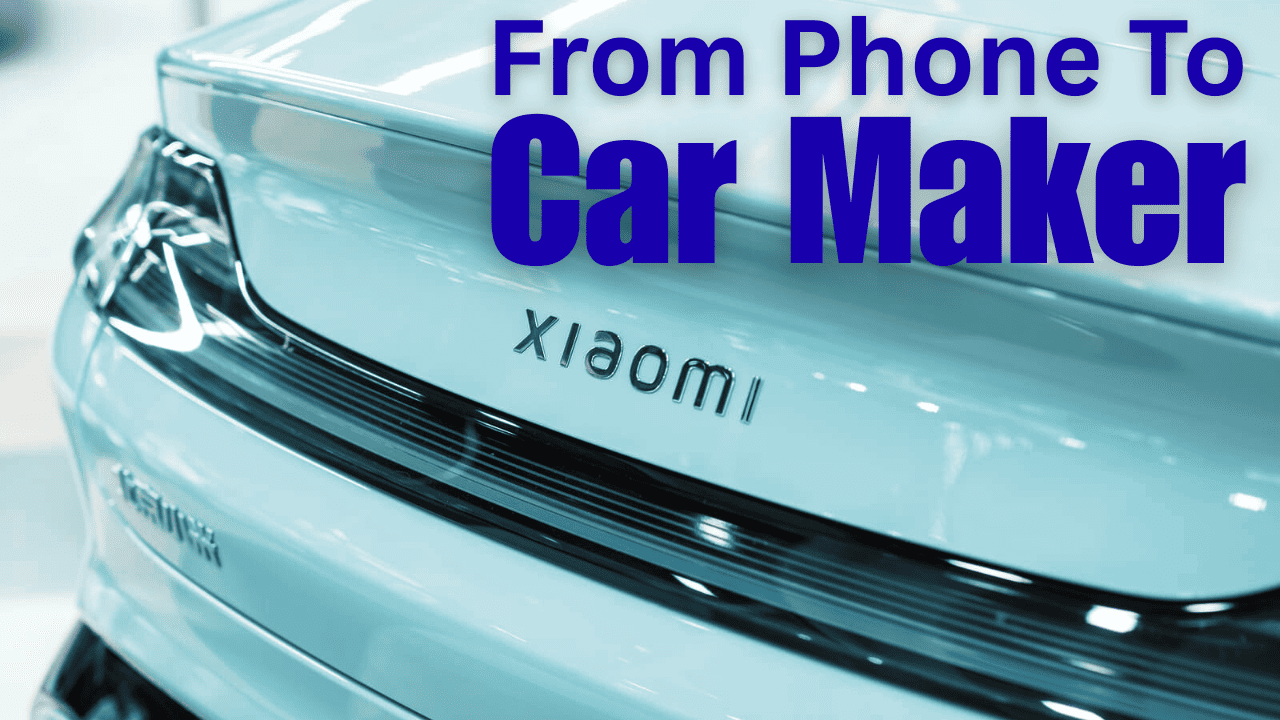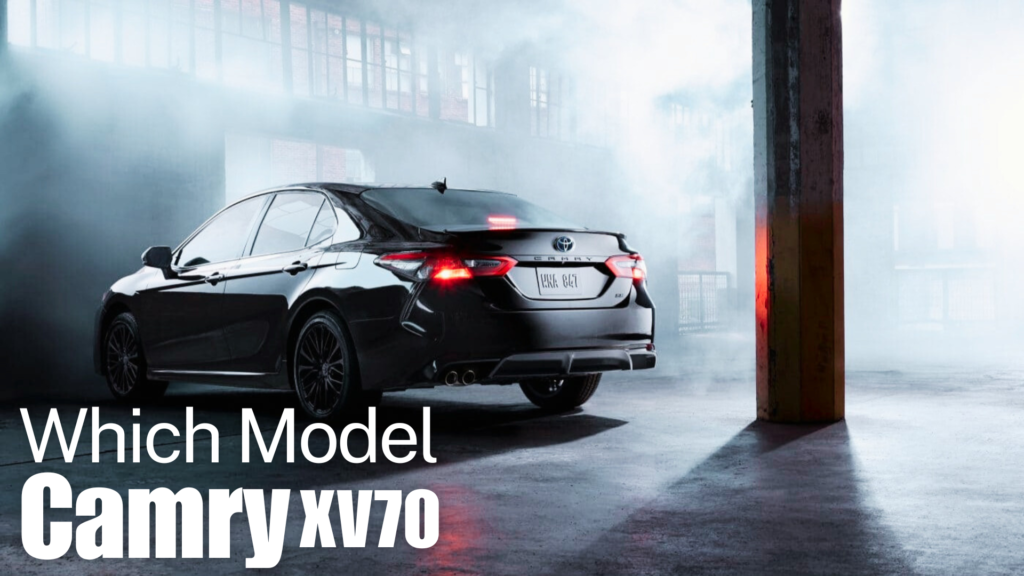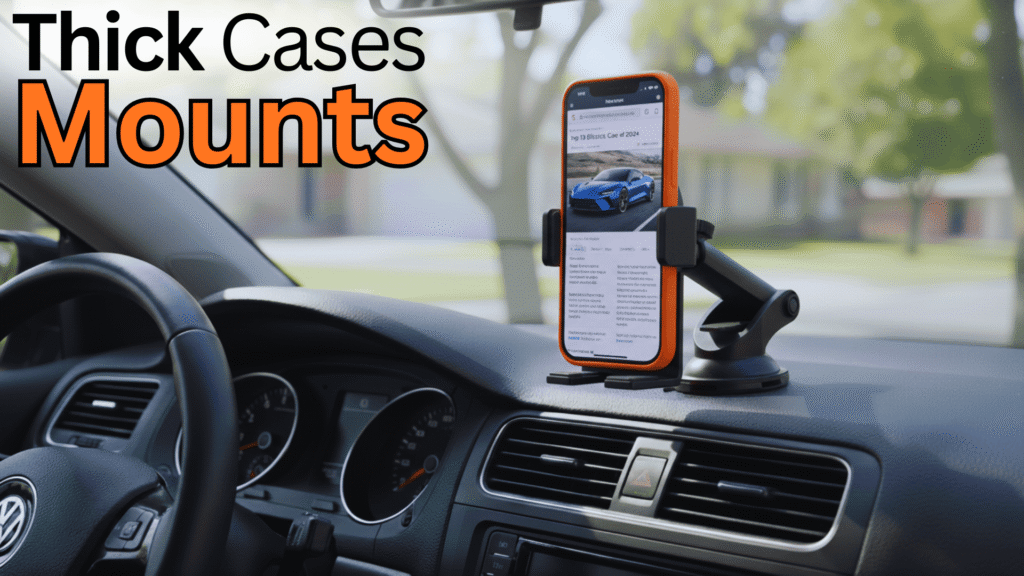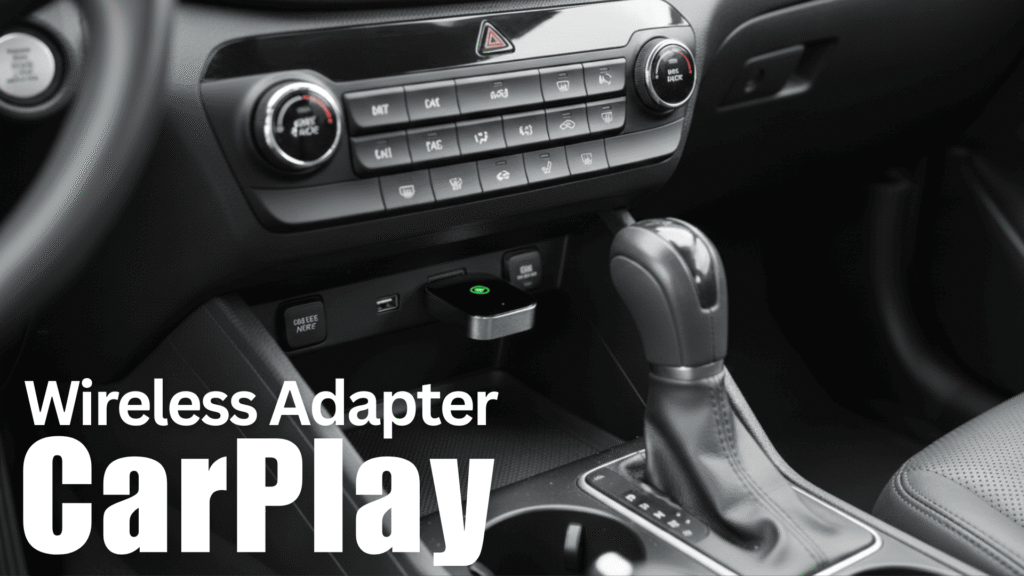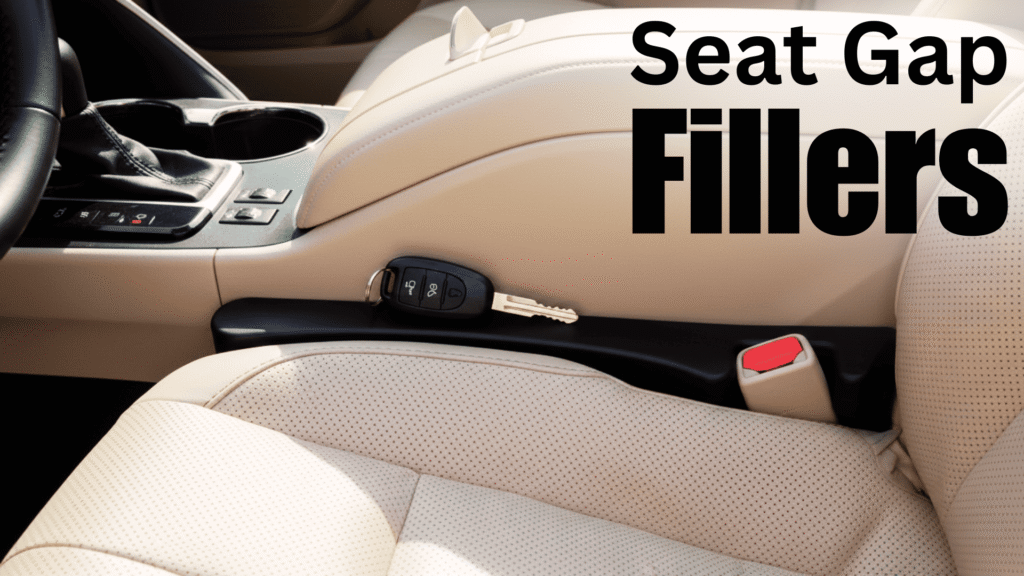Xiaomi’s big jump from making electronics to diving into electric vehicles really makes you wonder what they were thinking. In March 2024, they rolled out their first electric car, the Xiaomi SU7, moving from their usual smartphone game right into the EV world.
The company has invested plenty of cash into creating a state-of-the-art EV factory in Beijing for their first model. This factory is packed with all the latest tech to ensure production goes off without a hitch. Just the fact that they set up this factory shows that Xiaomi is all in on the car game and wants to be a big player in the Chinese EV market and consequently the rest of the the world.
So let’s take a quick look into Xiaomi’s surprising journey into the auto industry and how it is getting ready to go head-to-head with the well established and more experienced big names in the electric vehicle scene.
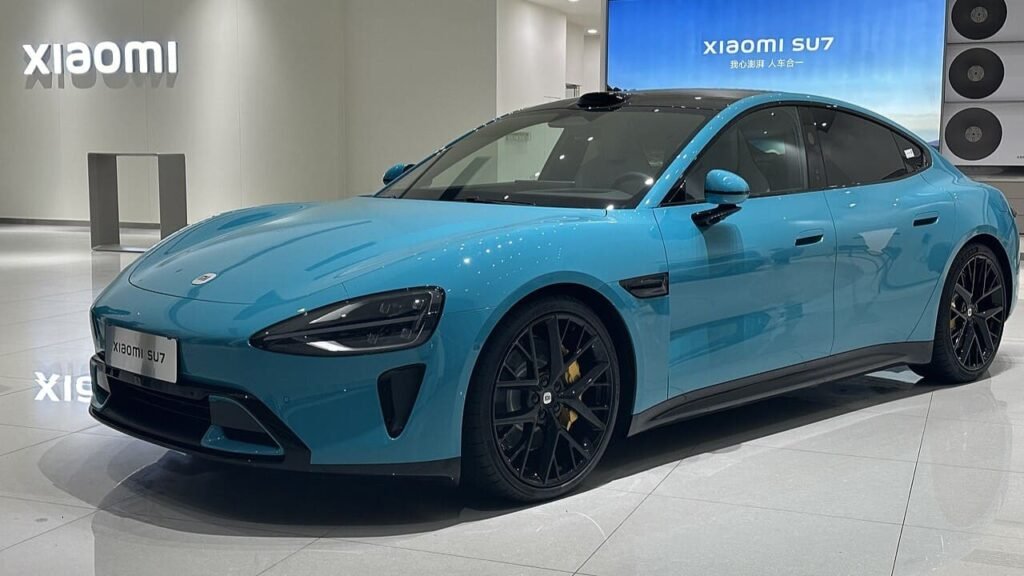
Bold Move That Makes Total Sense!
I think Xiaomi jumping into the car game happened for a few reasons. First, they’ve got plenty of cash and tech know-how from their smartphone biz, so they put a lot into research and development before diving in. Another big reason is the drive of their founder, Lei Jun, who wants his company to be a major player in both tech and transportation. Plus, the electric car market is still on the rise, so even if Xiaomi isn’t super experienced or a household name in this area yet, they still have a chance to catch up with the others. When you look at everything they’ve done in the smartphone arena it totally makes sense for them to expand into cars.
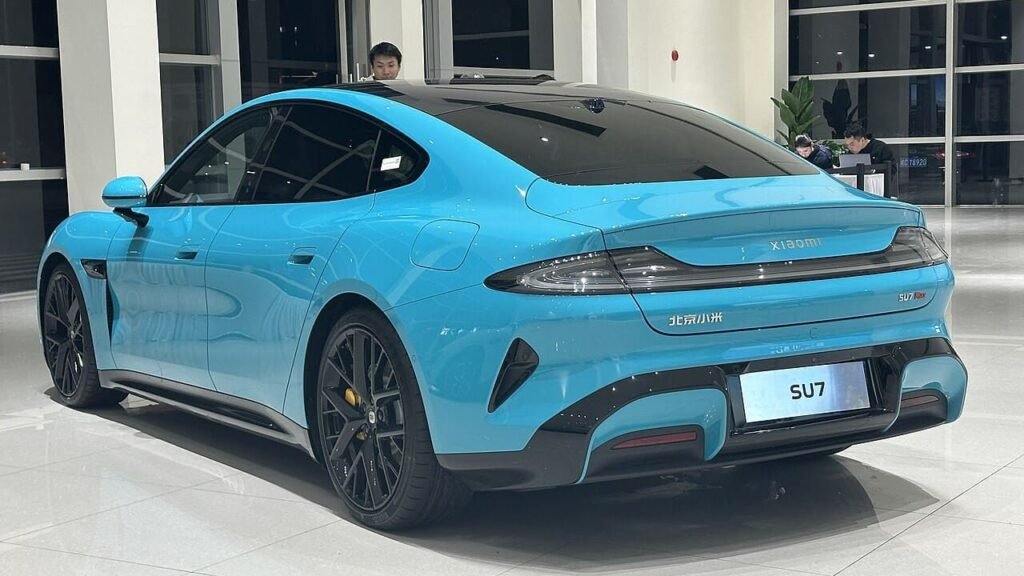
The SU7 is Xiaomi’s first shot at jumping into the electric vehicle game, using their ideas and resources to go up against the big players in the market.
Let’s break it down a bit more:
- Xiaomi made a big public promise to invest a lot in electric vehicles over the long haul. This gave them the room to hire the right people, design cars, and handle early losses.
- They ramped up their R&D team into the thousands for automotive stuff, which means they got the know-how fast instead of learning through mistakes.
- Xiaomi built a slick, high-tech factory that cuts down on labor issues and boosts production. Their factory tours show off super high automation rates and quick turnarounds.
- Nowadays cars are pretty much like “computers on wheels.” With Xiaomi’s skills in software, connectivity, and IoT, they can stand out with their features and services, where they’ve already got a solid footing.
- Xiaomi also made a smart move by making deals with charging networks and other partners. This helps them quickly cover any gaps in their capabilities.
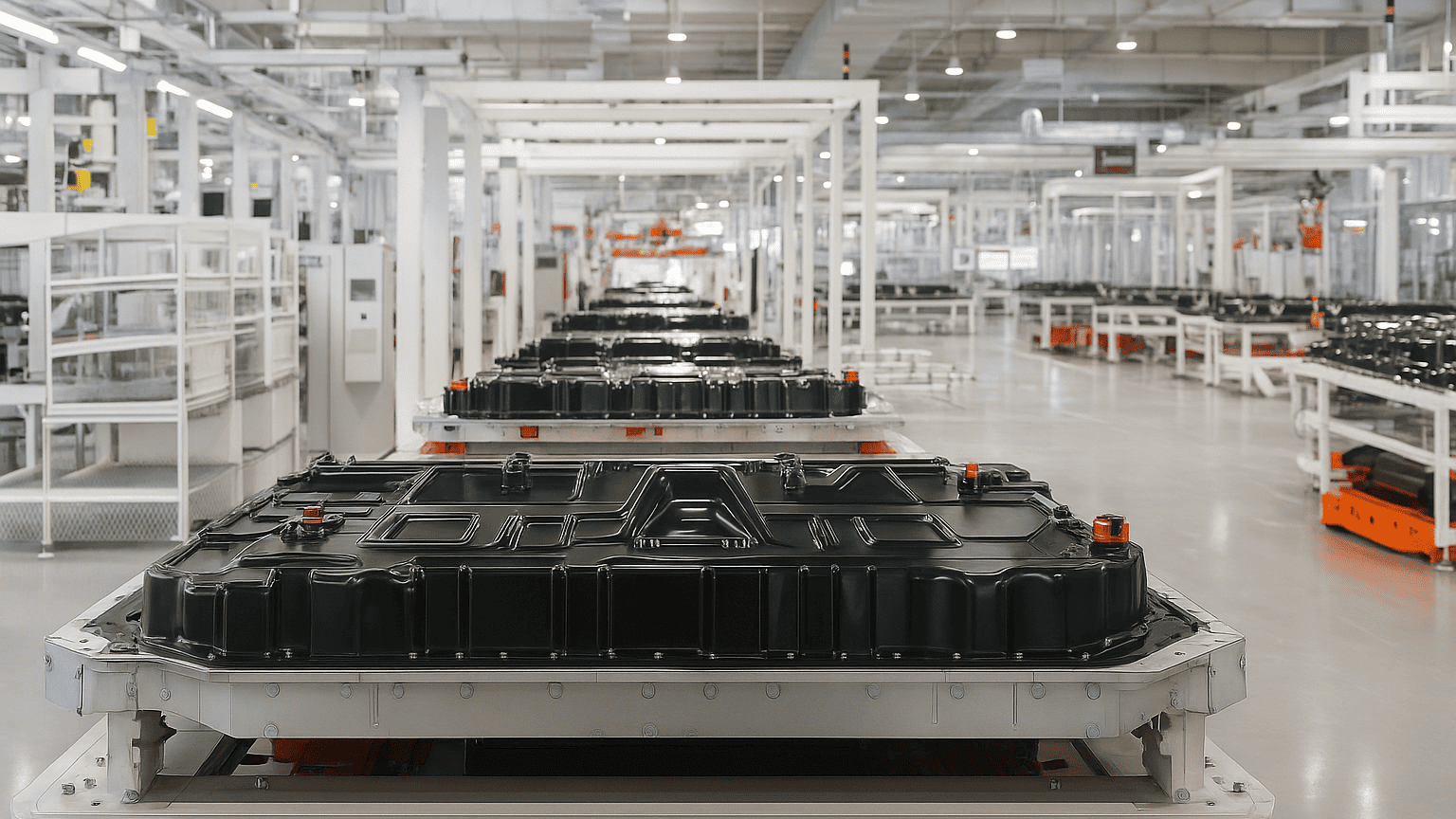
Xiaomi Factory target manufacturing a car every 76 seconds, according to Xiaomi’s claims! This level of efficiency shows how dedicated they are to ramping up and keeping up with the competition in the car industry.
Why it’s easier today than 10 years ago
Xiaomi has a solid EV parts ecosystem these days. Things like batteries, motors, and inverters are available to buy and combine rather than having to be created from scratch. This means that if you’re a driven businessman like Lei Jun, you have all the key parts you need to succeed right at your fingertips. Plus, they’re focusing on making software-first cars, which lets companies with cloud and OTA skills create unique user experiences faster than they can work on noise and vibration issues. For them, making electric cars is totally doable. And let’s not forget about contract manufacturing. There are more EMS and Tier-1 companies offering vehicle assembly services now, even big players like Foxconn, which makes jumping into actual vehicle production a lot easier. Lastly, there are some great market and policy vibes happening in China, making it easier to get factory permits and push EV adoption. Xiaomi is definitely making the most of that home-field advantage.
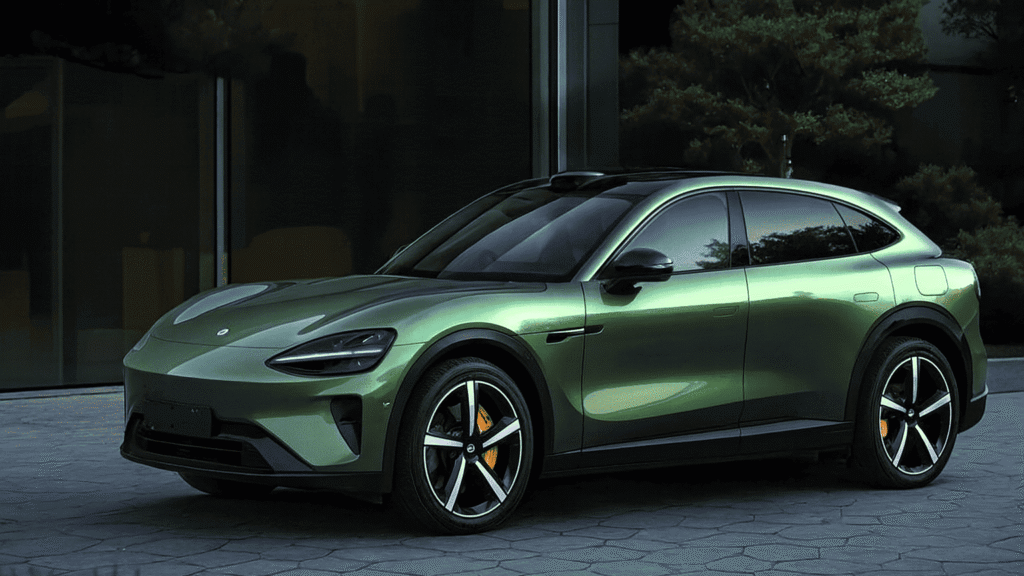
So again what went right for Xiaomi?
The founder really knew what he wanted and made sure to back it up with solid funding. This helped get rid of any political holdups since they had both public support and enough resources. They kicked things off with a fast pilot project and plan to ramp up production in 2024, which showed that their program management was spot on.
Their factory is super high-tech and runs mostly on automation to keep things quality and cost-effective. If you take a tour, you’ll see tons of robots working quickly. This setup allows them to produce a lot while keeping things consistent. Plus, Xiaomi has been smart about working with the charging networks in China. By teaming up with existing charging options, they made it easier for folks to buy their products.
Bottom line
What we could learn from Xiaomi’s journey is if your business has a little money, good leadership, and a plan to separate the flashy stuff like software and user experience from the everyday things like batteries and motors, you can really speed up what usually takes carmakers forever. But remember, you can’t skip the hard parts like testing the product, following the rules, and dealing with customer service. If you get that right, you’re not just building a car; you’re making a mobility product that can be updated and sold just like any software. To be honest, I never thought about buying their stuff before, but after seeing how daring they are with tech, I can totally say that my next phone is gonna be a Xiaomi.
SU7 Fire in Chengdu: How Xiaomi’s EV Crash Triggered a Market Sell-Off (Update)
Lately, there was a pretty serious incident involving an SU7 catching fire in China, which resulted in the driver losing their life. This event definitely caught a lot of attention from investors and regulators. Videos from a Chengdu crash where the SU7 burst into flames and bystanders had trouble getting the doors open went viral, bringing up some big questions about the safety of Xiaomi’s fast-growing electric vehicle plans. Because of this, Xiaomi faced its worst week of stock performance in several years.
Already, regulators told Xiaomi they need to roll out an over-the-air fix for the assisted-driving software in about 116,000 to 117,000 SU7 sedans due to prior concerns with their Level-2 highway pilot. The recent fire in Chengdu, along with other accidents earlier this year, has led to calls for a more in-depth look into the car’s hardware, door unlocking system, and overall safety. Xiaomi mentioned they’re working with the police and looking for solutions, but investigations are still in progress, and a lot of key details like what exactly caused the fire and if the door issues were due to power loss are still up in the air. So, it’s best to hold off on placing any blame until we get the official word.
What a sad situation! This incident highlights how quickly safety issues can lead to regulatory moves and impact the market for new electric vehicle brands. It’s wise to keep an eye on reports from regulators and Xiaomi’s official updates before making any strong judgments. Whether Xiaomi can bounce back from this and regain the momentum it once had will be something to watch. But I don’t think this changes how I feel about Xiaomi’s initial achievements. There were definitely some things they could’ve handled better, but personally, I’d still be open to getting a Xiaomi phone since I don’t think this incident really affects my view on their products.
Check out our homepage for more car articles and take a look below at some of our latest posts:
- Best Car Interior Cleaning Kits: Make Your Cabin Look New
- Which XV70 Camry Year Should You Buy? A Tested Guide
- Magnetic Phone Mounts & Mounts for Thick Cases: That Actually Work!
- Best Wireless CarPlay Adapters for Older Cars
- Best Seat Gap Fillers for Leather Seats
- The Most Underrated Cars — Hidden Gems You Should Actually Consider
*Disclaimer: This website provides automotive content for informational purposes only and should not be considered professional advice. While we strive for accuracy, we do not guarantee the reliability or suitability of any vehicle or product mentioned—always conduct your own research before making purchasing decisions. Additionally, some links on this site are affiliate links, meaning we may earn a commission if you make a purchase, at no extra cost to you. **Photos, courtesy of www.xiaomiev.com

